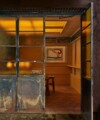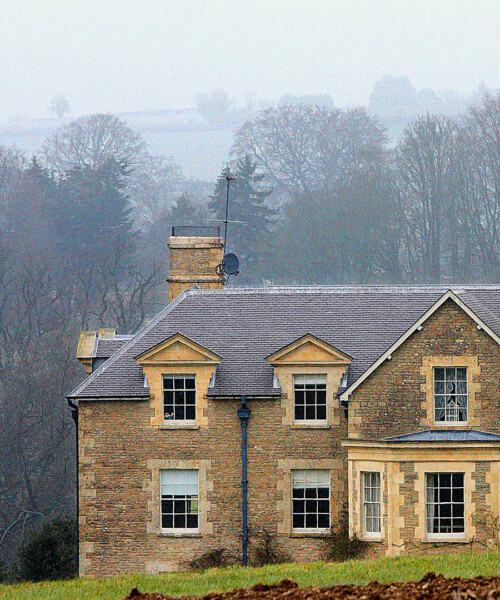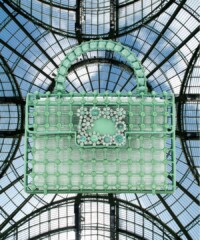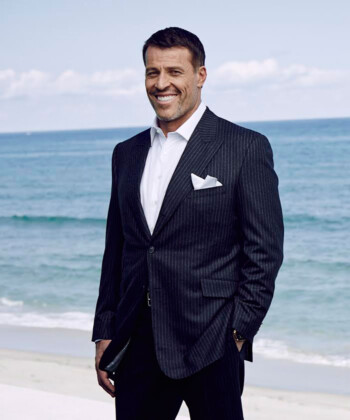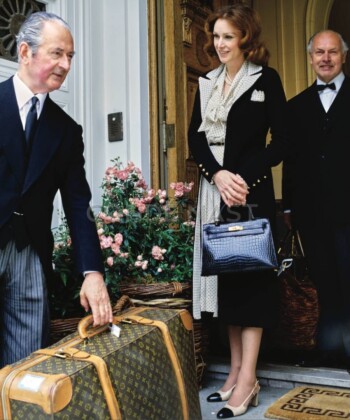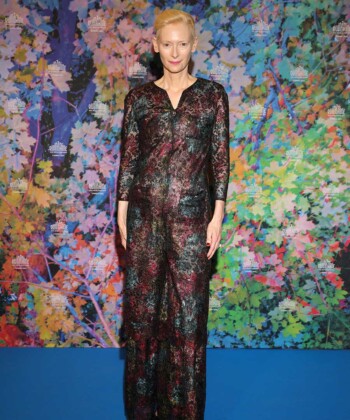“It’s hard to describe how good it feels to be home.” That’s what Rebekah Brooks wrote to her staff in September when she returned to her old job running News Corp’s U.K. media operation. If roaming the halls of the company’s 17-story command center near London Bridge station was indeed a homecoming for Brooks, the newspaper dynamo who had so spectacularly flamed out four years earlier, she was returning to a place that was very different from the one she had left behind—and a world away from Chipping Norton, the Cotswolds destination that had become grudgingly intertwined with her woes.
In the countryside around the bucolic market town, prior to her downfall and resurrection, Brooks and her famous friends with homes in the area were making waves as an exclusive social faction that laid bare the nexus of political and media clout among the U.K.’s power elite. Their opulent gatherings made for a Gatsby-esque moment in British society, whereby executives from the country’s most prominent news publisher might be clinking champagne flutes with the prime minister, who may in turn be high-fiving an international public-relations guru or trading gossip with a television personality or a pop star.
That all changed in the summer of 2011, when Brooks and her old flame Andy Coulson—Prime Minister David Cameron’s former communications director—found themselves at the center of a scandal involving phone-hacking and other illicit activity at News of the World, a News Corp tabloid, where both had served as editor and over which Brooks still presided as chief executive of News Corp’s U.K. newspaper unit. The scandal made villains out of rogue newspapermen and upended the global media empire of News Corp chairman, Rupert Murdoch, whose company became the object of international scorn. Brooks and Coulson were among dozens arrested and tried, casting a pall over the whole of the once-illustrious Chipping Norton set, as the group had come to be known, and turning them into a punch line about powerful people run amok. (Unlike Coulson, Brooks was cleared.)

Rupert Murdoch, Matthew Freud, Elisabeth Murdoch, David Cameron, Samantha Cameron, Rebekah Brooks and Jeremy Clarkson
At the time, Brooks and her husband, Charlie, jokingly referred to themselves as “The Chipping Norton Upset.” British journalist Peter Oborne was less charitable. Writing in the Telegraph in 2011, four days after an all-nighter that would go down as the Chipping Norton crowd’s last big hurrah (it was held at the newly renovated, 22-bedroom country house of Matthew Freud and Elisabeth Murdoch), and just one day after reports of phone hacking went viral with the revelation that one of the targets was a murdered 13-year-old named Milly Dowler, Oborne excoriated Brooks and her pals as “an incestuous collection of louche, affluent, power-hungry and amoral Londoners.”
Today, those parties are but a distant memory. “The Chipping Norton set is dead as a geographical or social entity,” Peter Jukes, a London-based author of two books about the phone-hacking scandal, says. “These moments of power rarely happen so sumptuously and so visibly. So in a way, we’re sad it’s over.”
That would seem to explain why the group still looms large in the popular imagination, rearing its head in gossip columns and newspaper copy. VIPs at an early September breakfast attended by Cameron, for instance, noted to the Mail on Sunday columnist Anne McElvoy that “the PM’s presence at an event laid on by Lord Chadlington, an Oxfordshire constituency friend, and the return of Rebekah Brooks to run Rupert Murdoch’s London newspapers marks a resurgence of the ‘Chipping Norton set.’ ” As one guest sniffed: “It’s the network that never dies.”
When Freud’s yacht was spotted at the Cannes Lions confab last summer, it prompted Fleet Street veteran Piers Morgan “to snort that Cannes was becoming ‘Chipping Norton on sea,’ ” according to the Guardian. A few months earlier that paper ran a mock-horrified article about how Cameron and his wife spent New Year’s Eve at an “old school disco-style” party thrown by Chipping Norton habitué Alex James, bassist for the pop band Blur.
“I’m afraid we need to face the terrifying possibility that the so-called Chipping Norton set did not die. It simply… mutated,” columnist Marina Hyde wrote at the time. “Perhaps it was retooling, and in its newest strain presents a threat for which we may be profoundly unprepared.”
Presumably, the Chipping Norton fascination prevails because the key players have continued to make headlines—Brooks’ dramatic News Corp comeback, or the surprise 2015 election victory that gave Cameron an unexpected second term as prime minister. “With Cameron re-elected and Rebekah back in News Corp,” a prominent U.K. journalist suggests, “there’s still some power sloshing about.”
Another comeback is that of James Murdoch, an occasional Chipping Norton guest, whose career was dealt a blow by the phone-hacking scandal. In its aftermath, his reputation was in tatters and his influence within News Corp diminished. As James’ father oversaw a separation of his media conglomerate into two entities, James was dispatched from London to New York and, according to a June 2015 New York Times profile, “he found himself cut off.” The hook for that profile? James’ appointment as CEO of News Corp’s sister company, 21st Century Fox.
Broadcast journalist Jeremy Clarkson—who swanned about the Cotswolds with Brooks, the Murdochs and the rest of the gang—is another man who can’t be kept down. After the BBC fired him from his program Top Gear last March for punching out one of his producers, it wasn’t long before he landed a gig with Amazon’s streaming-video service.
His new series is set to debut in 2016, and Clarkson will reportedly net more than $44 million over the course of his three-year contract, making him one of Britain’s highest paid television hosts. Clarkson was approached for this story, but his longtime manager—and, reportedly, estranged wife—Francie Clarkson responded on his behalf: “I’m afraid Jeremy will not be available to talk to you.” (Notably, when Clarkson was on thin ice with the BBC, Cameron spoke publicly in his defense.)
If there’s a theme here about second acts and new beginnings, it’s still unclear what the future holds for Chipping Norton’s erstwhile power couple, Matthew Freud and Elisabeth Murdoch. In the fall of 2014, the high-flying pair found themselves back in the news when it was revealed they were to divorce. Elisabeth, sister of James, had shrewdly distanced herself from the phone-hacking scandal and the family business, and there have been reports that she is not expected to make a professional return to her father’s companies. “She’s got a bunch of stuff she’s doing philanthropically and entrepreneurially,” James told the Hollywood Reporter in October, “and is very happy doing those things.” Freud (great-grandson of Sigmund) continues to run his eponymous British communications firm. However, according to London’s Evening Standard, “their break-up will disrupt a party power nexus that has taken root over the past 13 years.” Freud and I played e-mail tag for a few weeks, but in the end, he said, “I will respectfully pass.”
In fact, most of the prominent Brits contacted for this piece wouldn’t touch the subject. “Can’t help with this one,” Piers Morgan told me, while someone whose world was rocked by the phone-hacking scandal simply explained, “It’s a period I don’t want to revisit.”
Brooks’ rehab has been well documented. It began in June 2014 when a British jury cleared her of all charges related to phone hacking and corruption at News of the World. After being spotted at the News Corp mothership in New York City, Brooks became increasingly visible within the offices of News UK, and rumors swirled about what title Murdoch would bestow upon her. The rock-solid status of their relationship seems clear, considering he made her CEO. At press time, despite a threat from her former security chief that he’d “tell everything,” Brooks appears to be sitting pretty, with a presumably plush salary to match the reported $17.6 million severance she got in 2011 and a major News Corp acquisition to her credit—the video ad-tech company Unruly.
“Even Brooks and Cameron are now simpatico,” according to Cameron foe Lord Michael Ashcroft’s forthcoming biography of the prime minister. “Cameron and Brooks are back on speaking terms—but only just,” Ashcroft and his co-author, Isabel Oakeshott, wrote last fall in a preview of the book published by the Daily Mail. “There are no cozy suppers, no horse rides together, no intimate soirees with friends.” And it will probably stay that way, at least as far as the eye can see. “With the whole of Britain aware of the riot of inappropriate behavior a decade ago,” says Jukes, “if the Chipping Norton set does regather, it will have to be in secrecy. Otherwise it risks invoking Marx’s adage: history repeating itself, the first time as tragedy, and the second time as farce.”
Pictured above: Rebekah Brooks’ Cotswolds home, near the town of Chipping Norton









